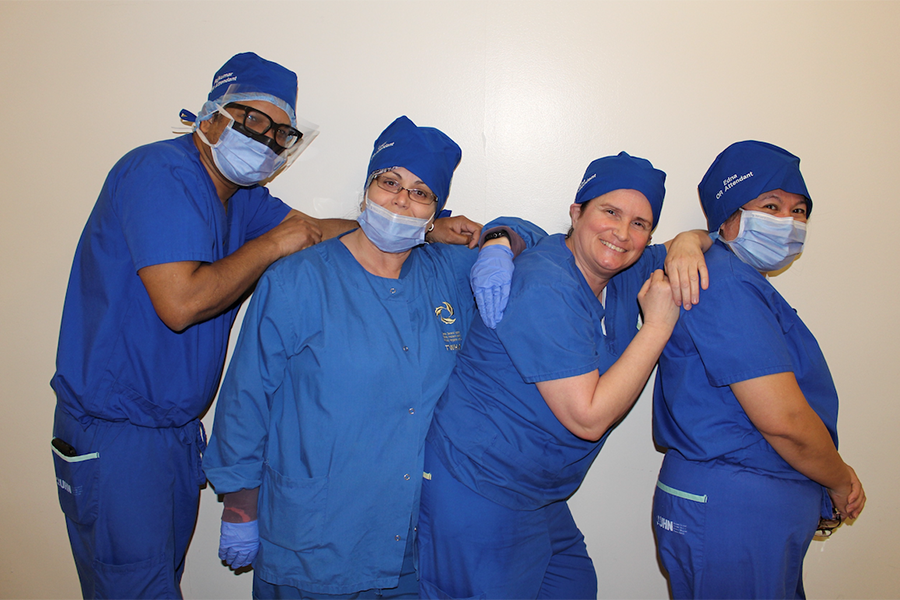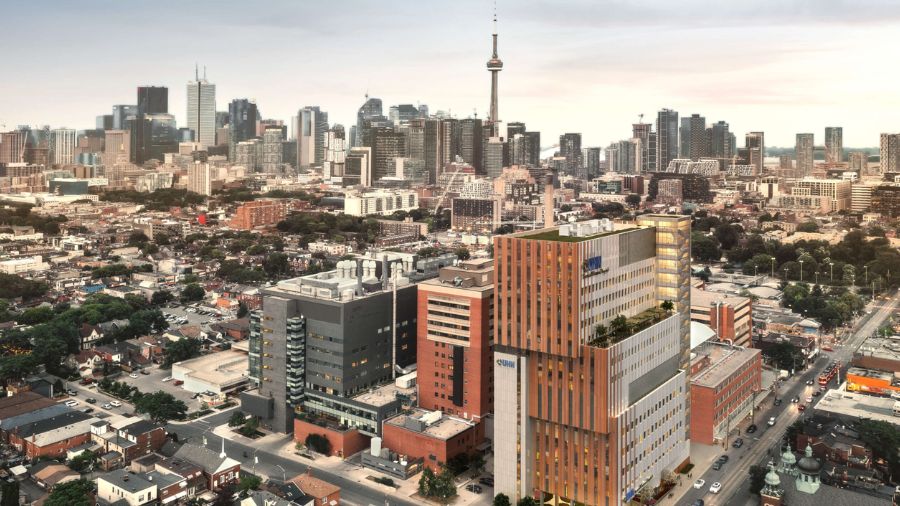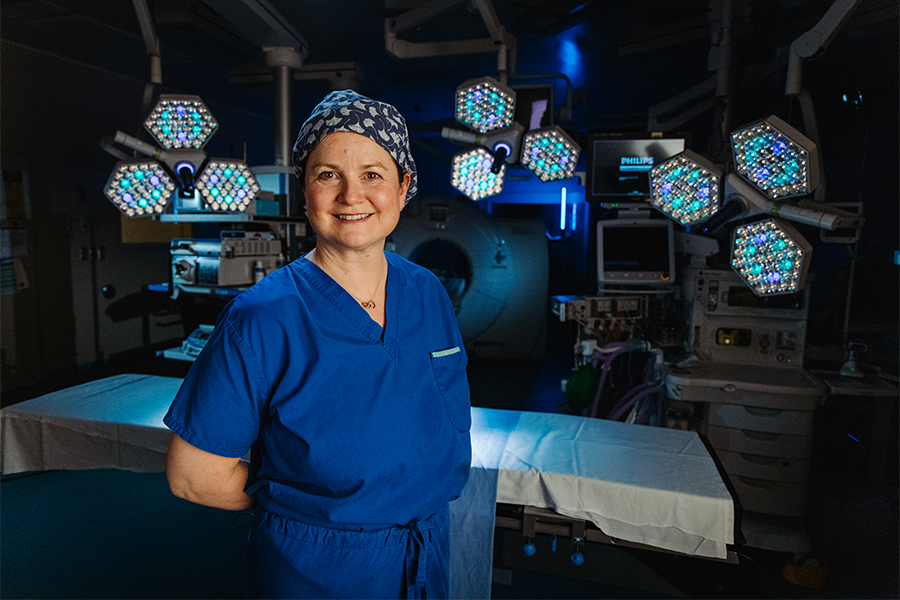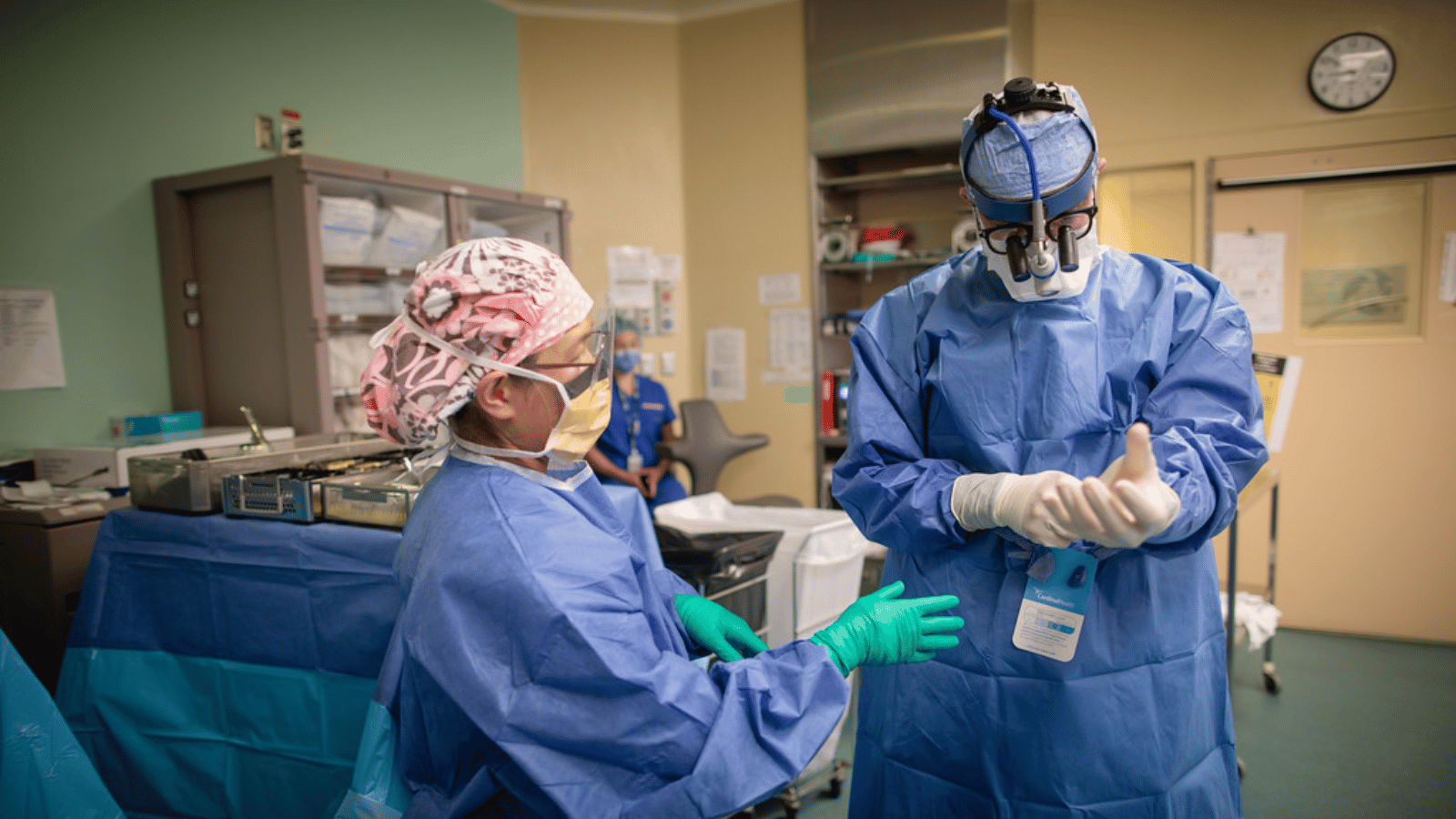
While it once may have only been possible in science fiction, today, having a robot in the operating room is a common occurrence at University Health Network (UHN). Since the acquisition of three new robots, more patients have benefitted from the minimally invasive procedures, better surgical outcomes, less pain and faster recovery times these surgical technologies enable.
Earlier this year, UHN began offering a suite of new robotic surgery options, including robotic esophagectomy. An esophagectomy is performed to treat esophageal cancer in combination with chemotherapy, radiation and immunotherapy. Surgeons remove part or all of the esophagus and – where required – build a new one from the patient’s stomach and intestinal tissue. According to Dr. Jonathan Yeung, Director of the Esophageal Cancer Program and Kress Family Chair in Esophageal Cancer at UHN, adding robots to the surgical team makes a huge difference.
“Using the robot allows us to access cutting-edge technology for esophagectomy. It facilitates lymph node dissection due to the wristed instruments [which can bend in ways a conventional laparoscopic instrument cannot] and allows for use of Firefly [fluorescent] imaging to test for conduit blood supply,” says Dr. Yeung.
Even in the best cases, an esophagectomy is a major surgery with significant recovery times. For patients like Nancy Burt, who was one of the first patients at UHN to undergo a full robotic esophagectomy, adding a robot to the surgical team can make a tough recovery easier. Despite the significant surgery required, with robotic assistance, patients can recover and return to their normal activities quicker.
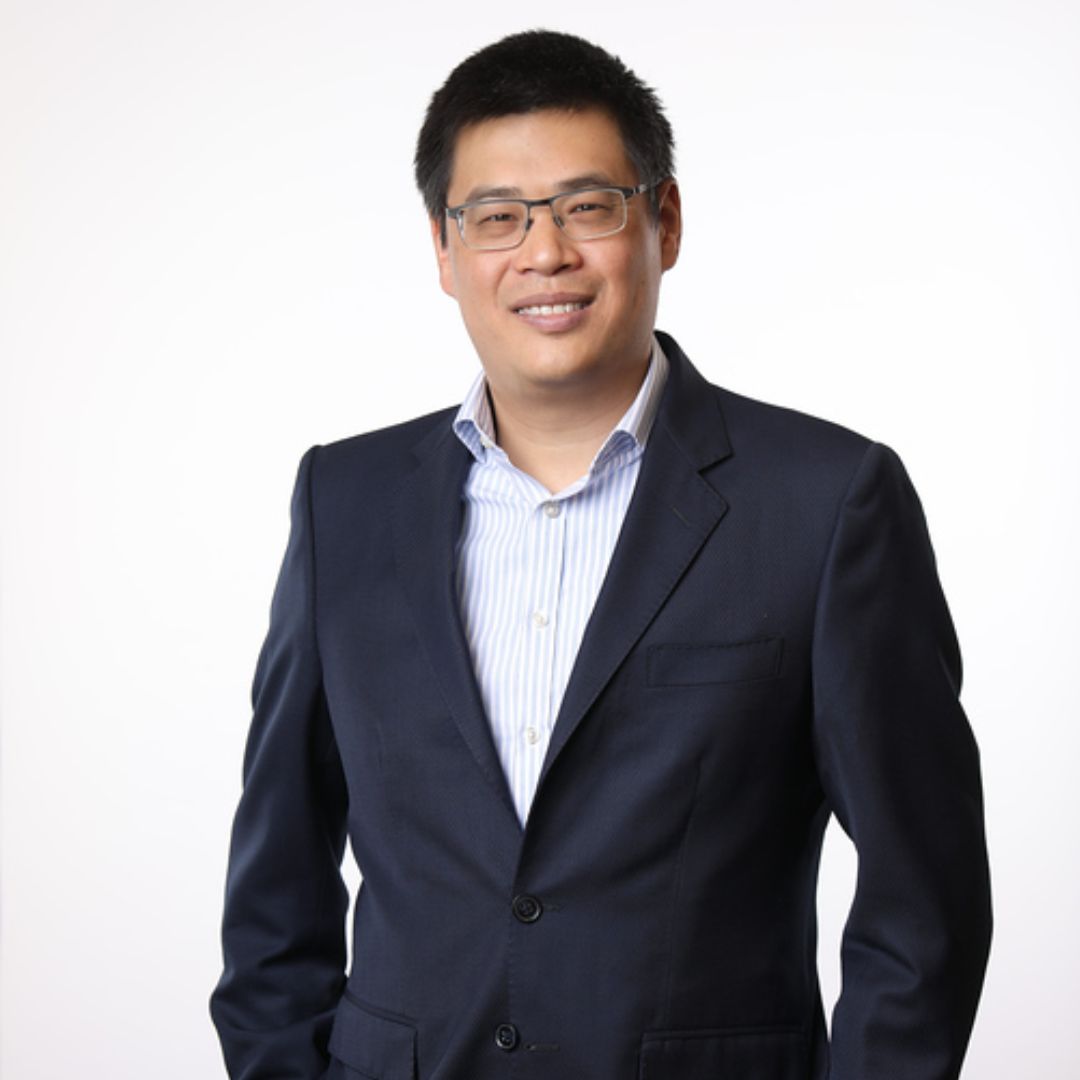
From knee replacements to esophagectomies
When Dr. Yeung floated the idea of robotic surgery to Nancy, it was not the first time she had heard of it. Her care team of arthritis specialists at Toronto Western Hospital had already discussed the option of robotic knee surgery with her, and it piqued her interest.
As a former journalist who had a long career at Toronto’s Humber College, Nancy turned her research skills toward learning more about robotic surgery. “It was very exciting. Along with artificial intelligence, it’s the way things are going with surgery and so much else,” Nancy says. “And so I really wasn’t surprised when Dr. Yeung mentioned the robot as a possibility for me when I was diagnosed with esophageal cancer.”
Still, she had her questions. Laughing, Nancy recalls a moment when she and Dr. Yeung were discussing how the robotic surgery would work. “I said to Dr. Yeung, ‘I hope you’re going to be here [for the surgery and] you’re not just going to let some robot work on me.’ He laughed and said, ‘I’m the one working the robot.’”
Making a tough recovery easier
Speaking at the fourth week in her recovery following the robotic esophagectomy, Nancy has been recovering well and is currently cancer-free.
“I seemed to start healing up really quickly. I was able to get up and walk around I think [the] next day. On the fifth day, they said we would try a bit of food. I thought, “I have a new esophagus and it’s going to feel really weird.” But it didn’t at all. I was absolutely shocked at that.”
Recovery from an esophagectomy – even a minimally invasive, robotic assisted one – is by no means easy. For example, Nancy’s stomach is now much smaller than it was before, curtailing how much she can eat at one time. But combining the exceptional surgical expertise of team UHN with cutting-edge robotic technologies can make that recovery journey smoother and less painful, so patients like Nancy can get back to their daily life sooner.
The difference that care makes
While surgical robots make an incredible difference in the operating room, patient care is still delivered best with a human touch. For Nancy, that is where the team at UHN made all the difference.
“The care that I received — it’s been fabulous. I can’t say enough about the really special, special people that work [at UHN],” Nancy says. “I can’t say that I met one person who rubbed me the wrong way. Everybody was just wonderful. Everything was explained to me in great detail. People would sit and hold my hand.”
In particular, Nancy recalls Drs. Yeung, Elena Elimova and Aruz Mesci as going the extra mile with humour, compassion and empathy. Nancy says, “I’ve told all my friends, I hope none of you ever have to have cancer. But if you do, don’t go anywhere else.”
